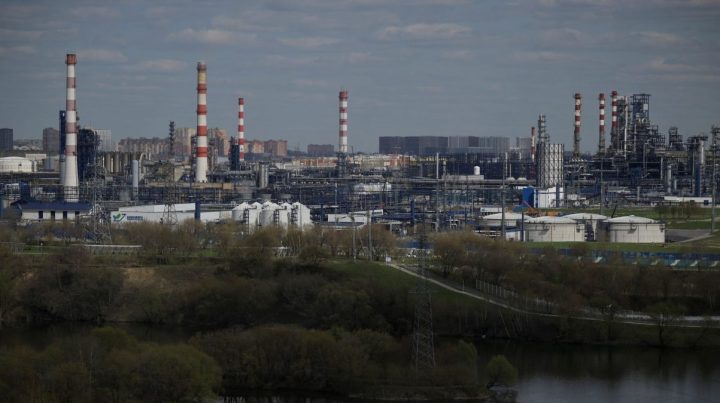
The Saudis are buying up Russian diesel — and selling more of the stuff they produce themselves
The Saudis are buying up Russian diesel — and selling more of the stuff they produce themselves

One of the allies’ top goals after Russia invaded Ukraine last year was to hit Russian revenues by limiting the country’s ability to sell its oil.
But in at least one area, those efforts by the United States and European Union don’t seem to be working very well: The Saudis appear to be buying up Russian diesel and selling more of the stuff they refine themselves, according to a new data analysis by Bloomberg.
What the Saudis are doing is pretty simple, according to Matt Smith of the data and analytics firm Kpler.
“They’re not doing it just from the goodness of their own heart,” he said. “They were able to take this cheap material, consume it domestically, and then export their own at a market price, which will be much higher.”
The kingdom started buying Russian diesel in February, after the EU banned the fuel, Smith said. Now, it’s buying around 180,000 barrels of Russian diesel every day.
“Russia is struggling to find a home for its refined products and needs to so they can keep revenues up. And so from that perspective, Saudi Arabia is really stepping up and helping them on this front,” he said.
For Saudi Arabia, buying Russian diesel is legal, explained Karen Young, a senior research scholar at Columbia University’s Center on Global Energy Policy. After all, the goal of Western sanctions was to cap the price of Russian energy, not to prevent it from reaching the global market.
“It was to continue to get that product out so that we wouldn’t have a global shortage and have the price go through the roof for the rest of us,” Young said.
The West, she said, is playing the long game. “This use of sanctions and a price cap was not intended to stop or cease the Russian energy business.”
Instead, Young added that sanctions are taking aim at Russia’s energy sector a different way: “You’re not going to see any investment going into the Russian oil and gas industry. So it’ll be debilitated over time.”
But for now, the West is left with an “in-between” approach on Russian energy, said Ellen Wald, a nonresident senior fellow at the Atlantic Council’s Global Energy Center.
“If you really want to cut off all of Russia’s money, then this policy is not really working,” she said.
A full embargo could work, Wald added — but it’d be pretty hard to sell to the American people.
There’s a lot happening in the world. Through it all, Marketplace is here for you.
You rely on Marketplace to break down the world’s events and tell you how it affects you in a fact-based, approachable way. We rely on your financial support to keep making that possible.
Your donation today powers the independent journalism that you rely on. For just $5/month, you can help sustain Marketplace so we can keep reporting on the things that matter to you.

















